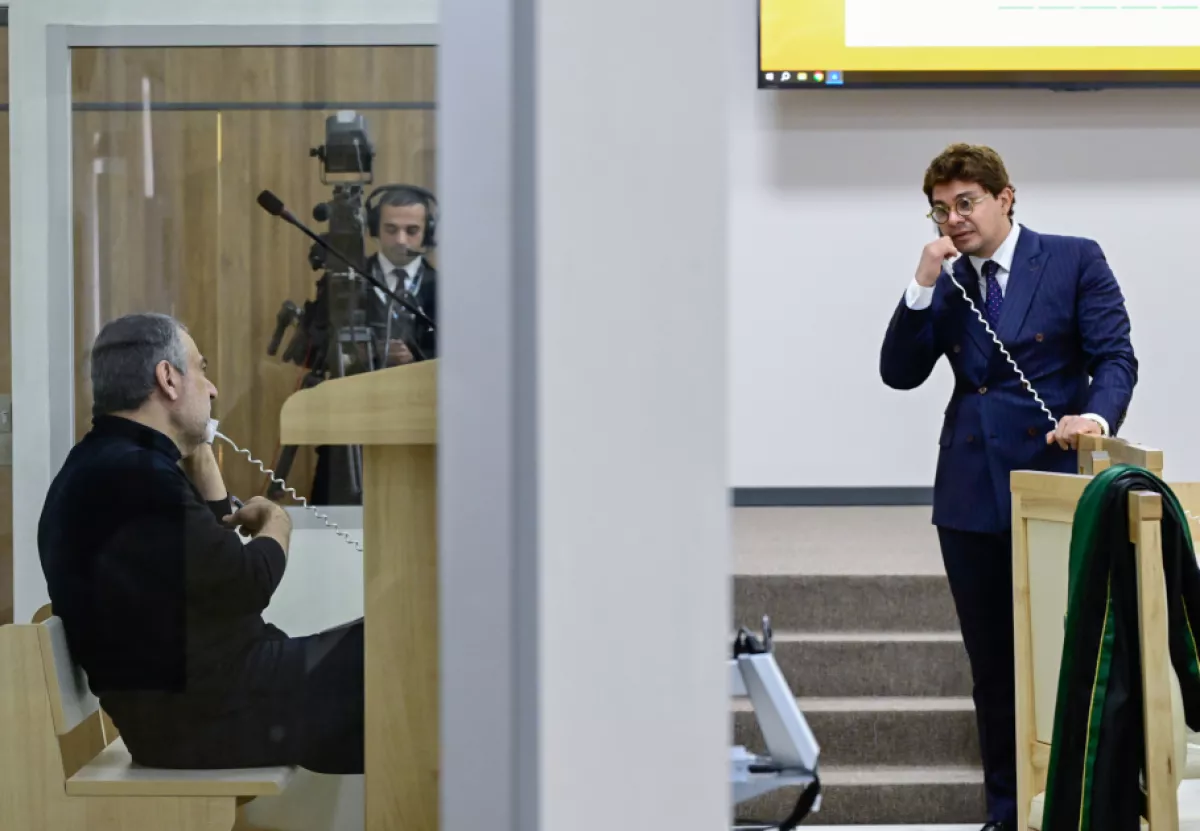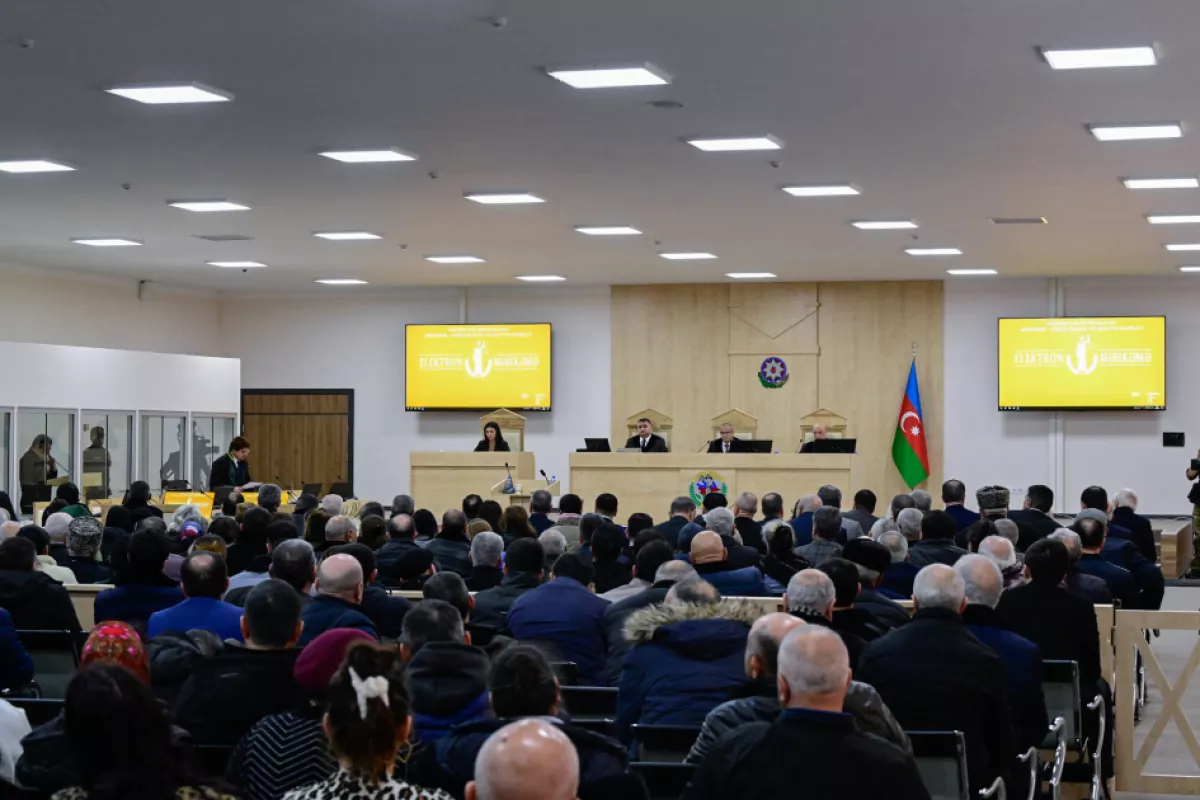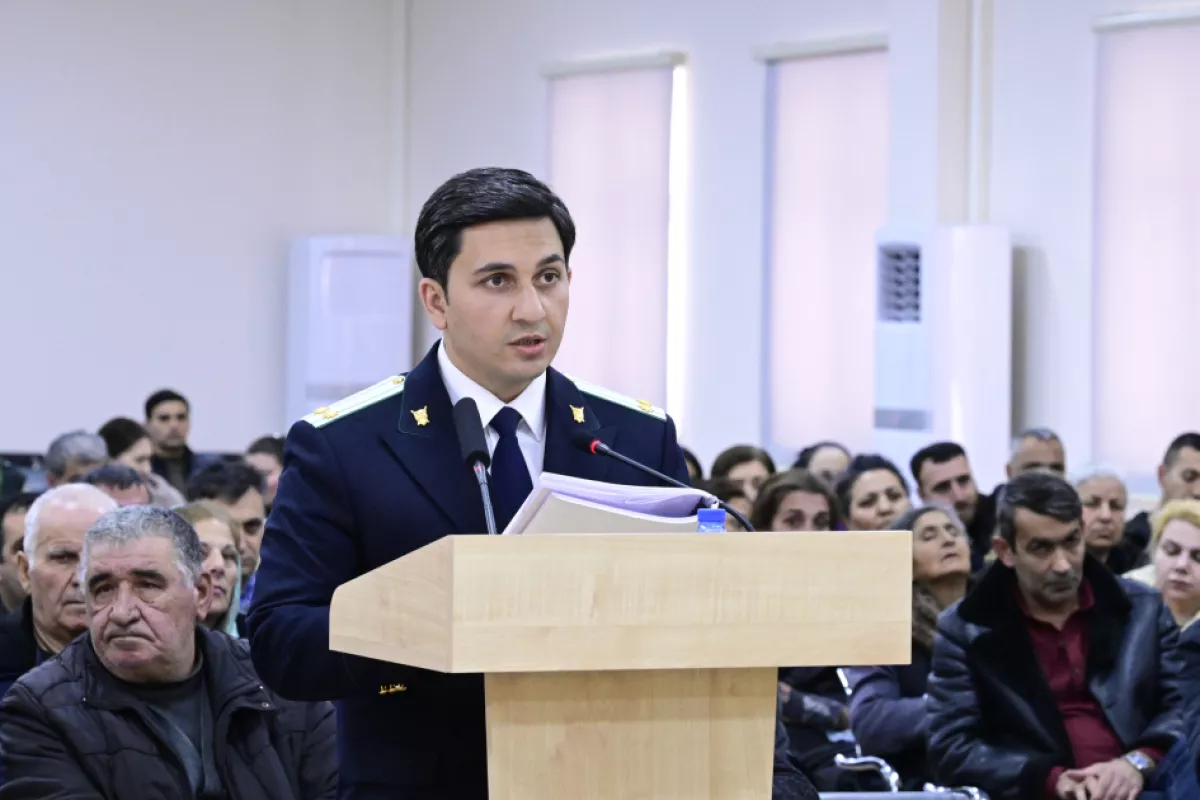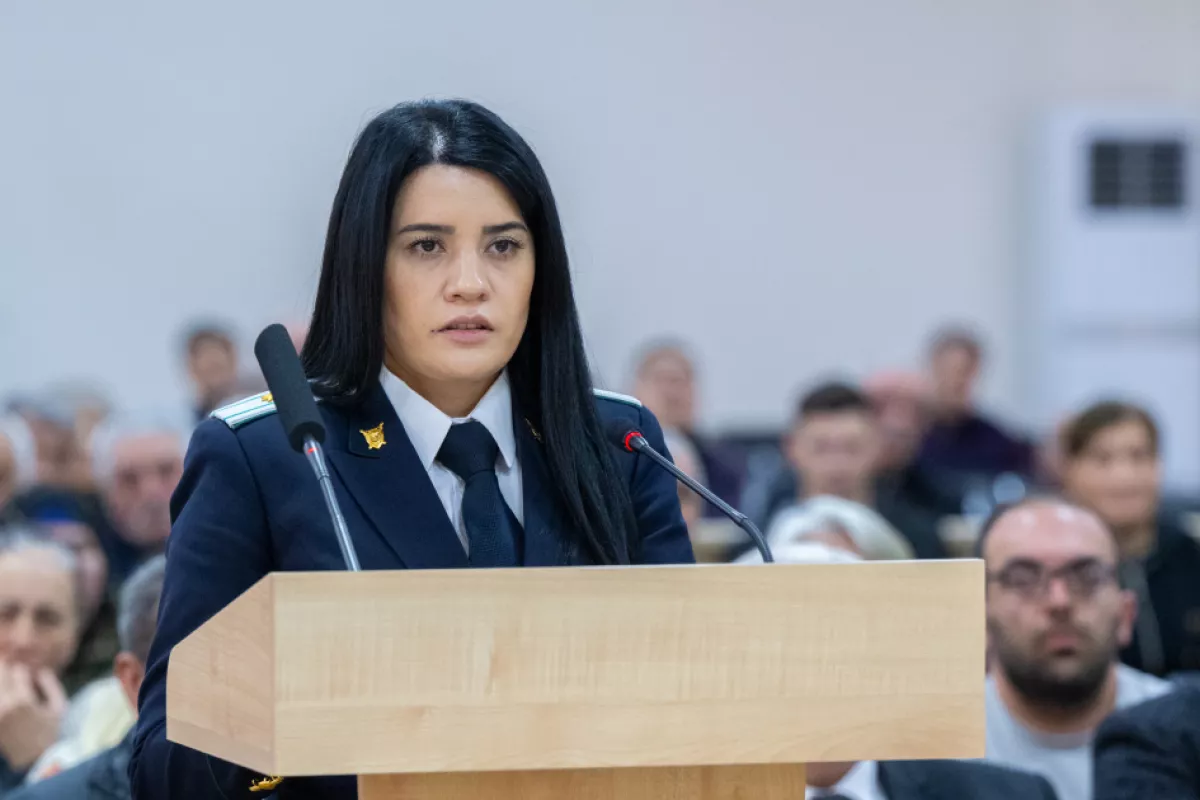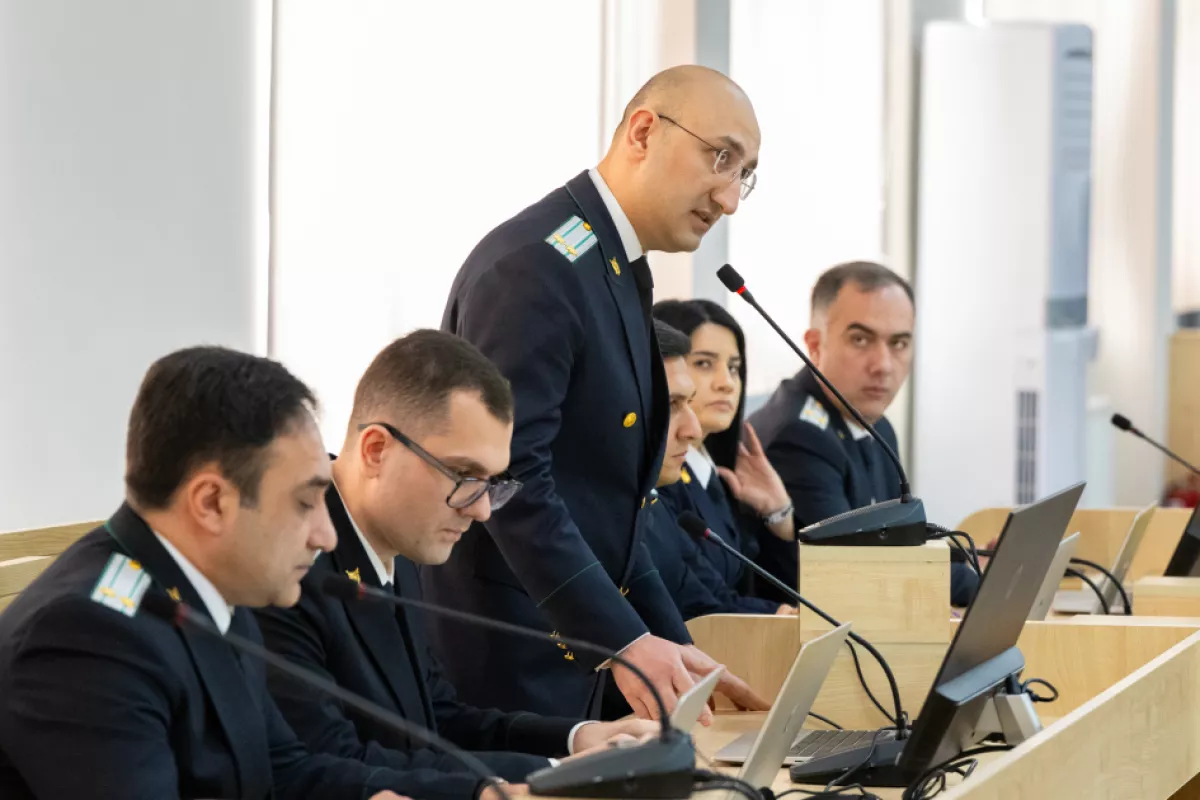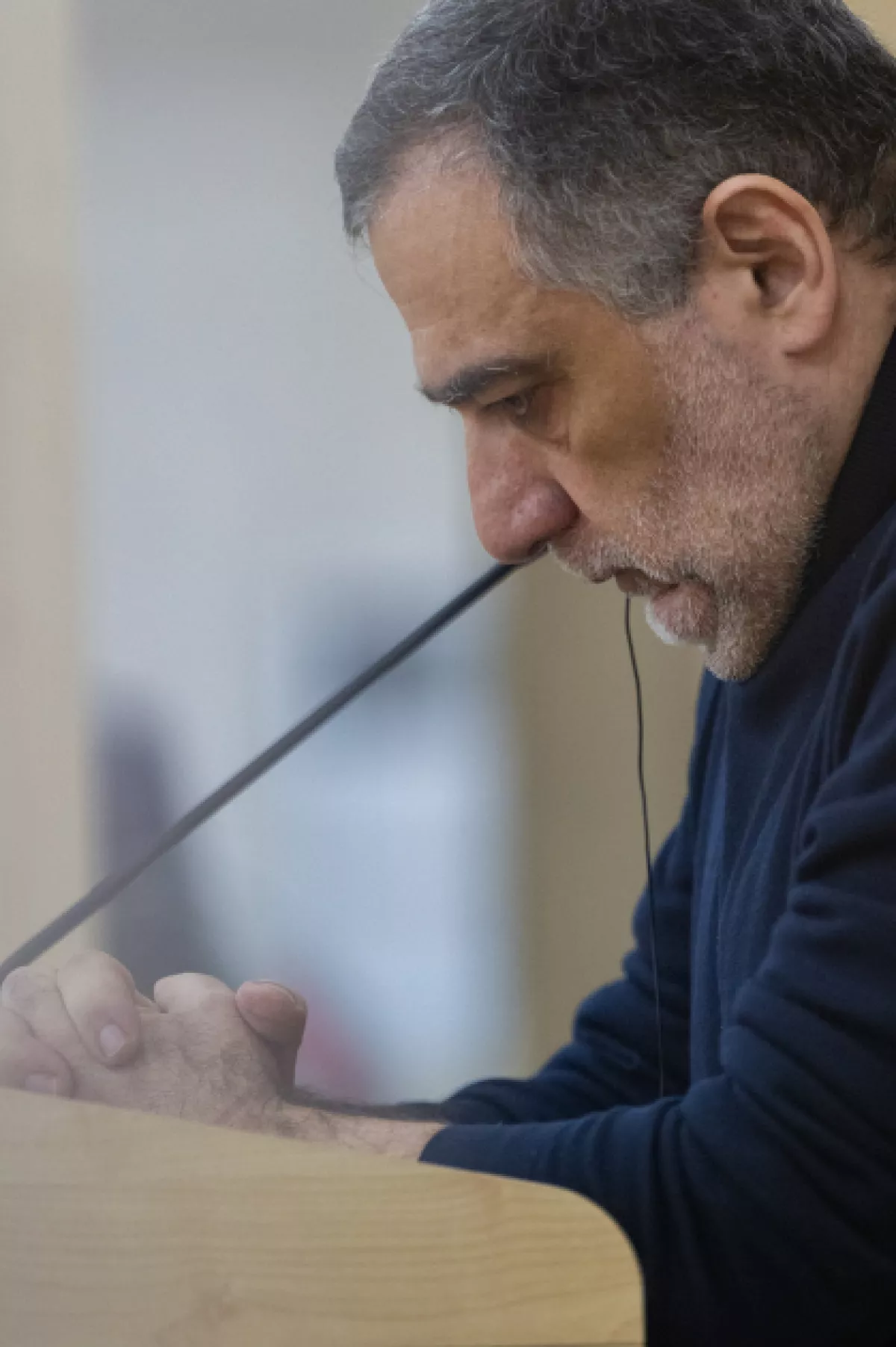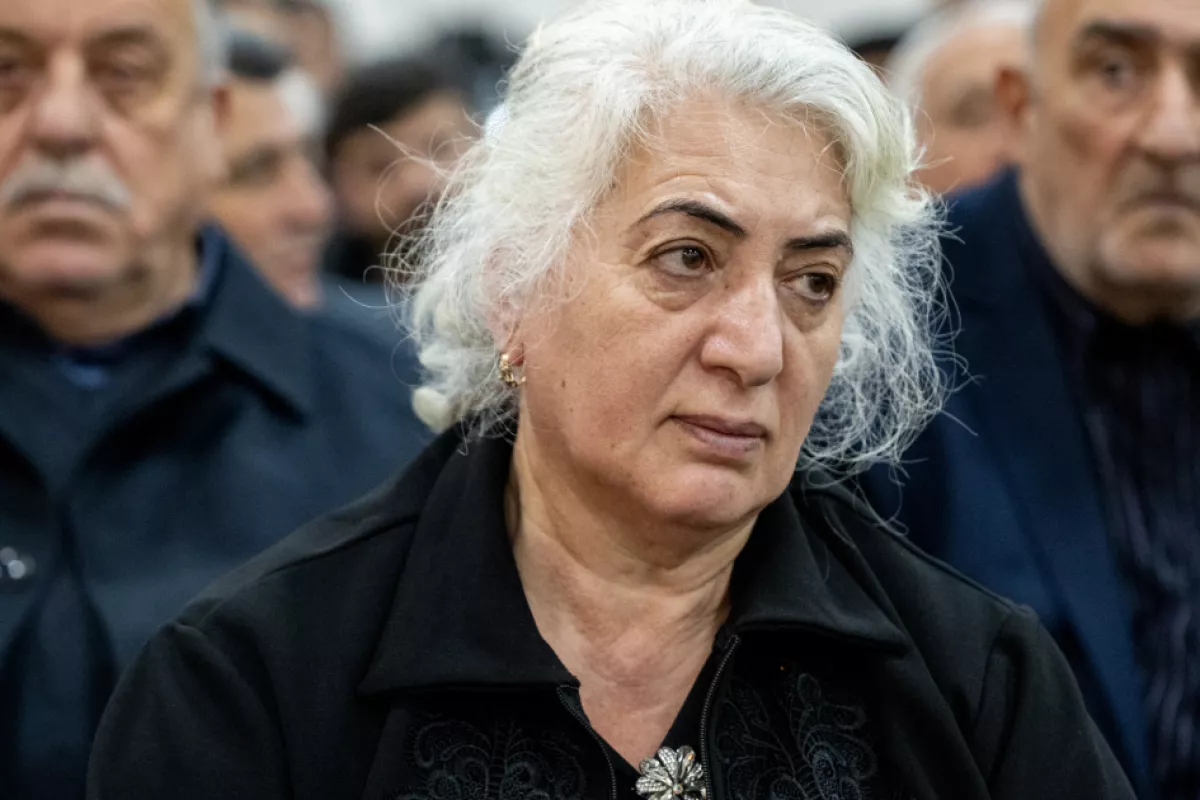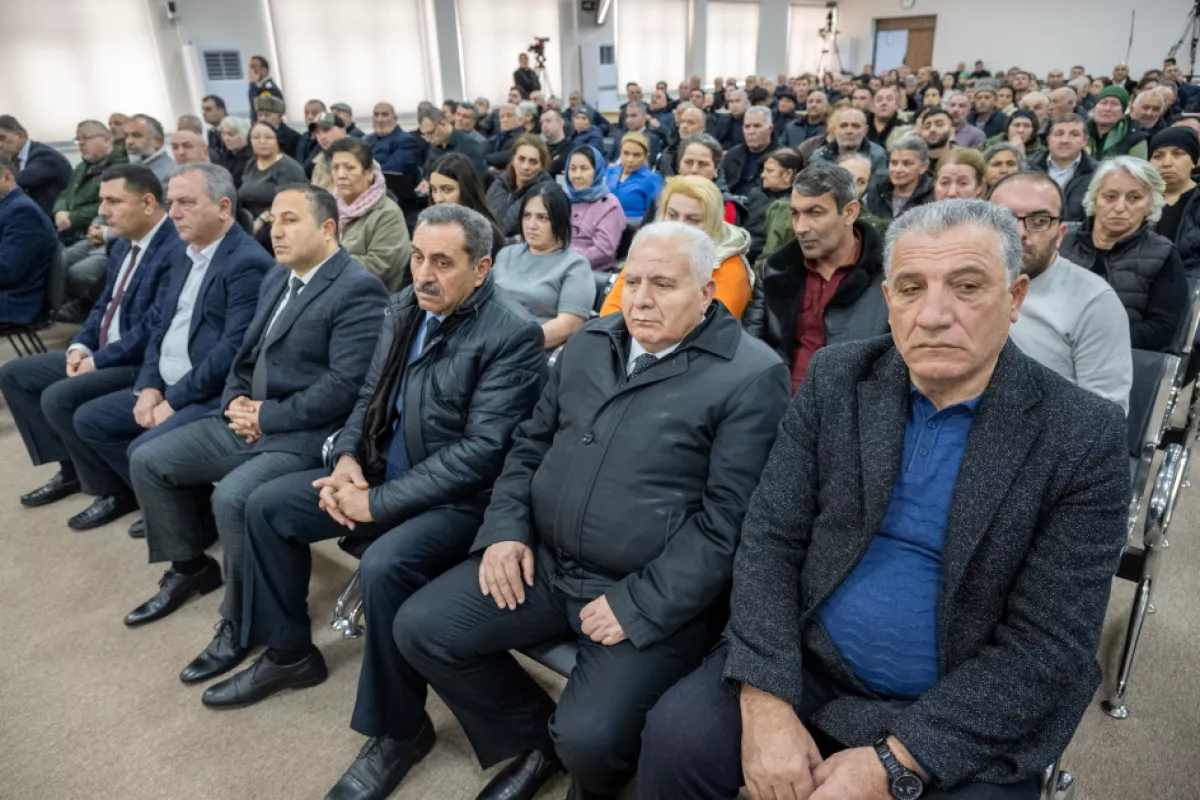Azerbaijani court rejects Ruben Vardanyan’s motion challenging its composition PHOTO
On February 17, the court hearing in the criminal case against Ruben Vardanyan, a citizen of Armenia accused under the Criminal Code of the Republic of Azerbaijan of crimes against peace and humanity, war crimes, as well as terrorism, financing terrorism, and other serious offences, continued.
At the Baku Military Court, an open court session was held under the chairmanship of Judge Zeynal Aghayev, with Anar Rzayev and Jamal Ramazanov as members of the judicial panel (reserve judge Gunel Samadova). The defendant was provided with a translator to communicate in his preferred language, Russian, as well as with lawyers for his defence, Caliber.Az reports via Azertag.
The hearing was attended by the victims, their legal successors and representatives, as well as prosecutors representing the state prosecution.
At the beginning of the session, Ruben Vardanyan and his lawyer, Avraam Berman, requested the court to provide conditions for a confidential meeting.
The court granted the request and announced a recess for the confidential meeting.
After the recess, Ruben Vardanyan and his defence lawyer filed a motion challenging the composition of the court.
The prosecutors representing the state prosecution, Vusal Aliyev and Fuad Musayev, responded to the motion, stating that a similar motion had already been reviewed in a previous court session and an appropriate decision had been made. They reiterated the provisions of the Criminal Procedure Code of the Republic of Azerbaijan, which specify the circumstances under which a judge may be challenged and the necessity of substantiating such a challenge.
Noting that no concrete grounds had been established for the claims made in the motion, the prosecutors requested that the challenge be left without consideration.
The victims present at the court session also requested that the challenge be left without consideration.
Following this, the court adjourned for deliberations. After the deliberations, the court announced its decision, ruling that the challenge would not be considered.
During the latest court hearing, the indictment outlined that the state of Armenia, along with its government officials, military forces, and illegal armed groups, had directly led and participated in criminal activities. These actions were carried out under verbal and written orders, instructions, and directives, as well as through material, technical, and personnel support, centralised management, and strict oversight. The crimes were committed in violation of domestic and international legal norms, with the aim of launching military aggression against Azerbaijan.
The indictment also highlighted the involvement—both direct and indirect—of key figures, including Robert Sedraki Kocharyan, Serzh Azati Sargsyan, Vazgen Mikayeli Manukyan, Vazgen Zaveni Sargsyan, Samvel Andraniki Babayan, Vitali Mikayeli Balasanyan, Zori Hayki Balayan, Seyran Musheghi Ohanyan, Arshavir Surenovich Karamyan, Monte Charles Melkonian and others.
During the course of Armenia’s aggressive war, this criminal entity was responsible for the mining of Azerbaijan’s formerly occupied sovereign territories, the torture of Azerbaijani prisoners and hostages, and other individual criminal acts. The indictment further detailed the circumstances that made it inevitable for the Armed Forces of Azerbaijan to launch counterterrorism operations.
According to the indictment, between September 12 and 14, 2022, Armenian armed forces deliberately launched intensive fire from large-calibre weapons, mortars, and various artillery systems at the Azerbaijani Armed Forces' guard posts and headquarters located in the Zangilan, Gubadli, Dashkasan, Kalbajar, and Lachin districts.
As a result of these attacks, 77 Azerbaijani servicemen were deliberately killed, while 435 servicemen, as well as one civilian resident of Kalbajar district, sustained severe injuries in an attempt to kill them.
Additionally, the indictment stated that the Armenian state, through Ruben Vardanyan and others, had supplied the so-called “Nagorno-Karabakh Republic” and its illegal armed formations—established in Azerbaijan’s formerly occupied sovereign territories and operating under Armenia’s control—with a total of 160 units of various types of armoured combat vehicles, 16,805,903 units of various firearms, their components, and ammunition, 230 mortars of different calibres, 137 anti-tank weapons, 162 artillery guns of various types, 3 ground radar systems, 41,522 hand grenades, the “Pole-21” radio jamming system used to disrupt aircraft navigation and targeting, and the “Repellent-1” electronic warfare system designed to suppress navigation and telemetry signals.
Finally, Senior Assistant to the Prosecutor General, Vusal Aliyev, announced the relevant articles of the Criminal Code under which the defendant, Ruben Vardanyan, is being charged.
With this, the announcement of the concluding part of the indictment was completed.
Presiding judge Zeynal Aghayev then explained to the accused the essence of each charge brought against him, the legal qualification of the acts he was accused of, the penalties stipulated by criminal law for these acts, and his rights as a defendant.
Following this, the judge, in accordance with legal procedures, asked the defendant whether he pleaded guilty.
In protest against the charges, the defendant refused to answer the questions.
The next court session is scheduled for February 25.
Ruben Vardanyan is charged under the Criminal Code of Azerbaijan: 100.1, 100.2 (planning, preparation, initiation, and conduct of an aggressive war); 107 (deportation and forced displacement of the population); 109 (persecution); 110 (enforced disappearance of persons through violence); 112 (unlawful deprivation of liberty in violation of international legal norms); 113 (torture); 114.1 (mercenarism); 115.2 (violation of the laws and customs of war); 116.0.1, 116.0.2, 116.0.10, 116.0.11, 116.0.16, 116.0.18 (violation of international humanitarian law during an armed conflict); 120.2.1, 120.2.3, 120.2.4, 120.2.7, 120.2.11, 120.2.12 (premeditated murder); 29,120.2.1, 29,120.2.3, 29,120.2.4, 29,120.2.7, 29,120.2.11, 29,120.2.12 (attempted murder); 192.3.1 (illegal entrepreneurship); 214.2.1, 214.2.3, 214.2.4 (terrorism); 214-1 (financing of terrorism); 218.1, 218.2 (organizing a criminal association); 228.3 (illegal acquisition, transfer, sale, storage, transportation, or carrying of firearms, their components, ammunition, explosives, and devices); 270-1.2, 270-1.4 (acts threatening aviation security); 278.1 (seizure of power by force, retention of power by force, or violent change of the constitutional order of the state); 279.1, 279.2, 279.3 (creation of armed formations or groups not provided for by law); 318.2 (illegal crossing of the state border of the Republic of Azerbaijan).
By Vugar Khalilov




